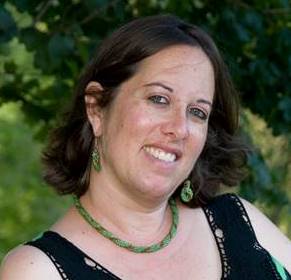Today, I’m hosting Day 3 of a 5-day virtual tour sponsored by the Working Writer's Club, for Dorit Sasson’s two new books: Speaking and Writing for English Language Learners: Collaborative Teaching for Greater Success with K-6
Reading and Listening for English Language Learners: Collaborative Teaching for Greater Success for K-6.
Dorit offers Some Tradebook Tips for Teachers
Because these two books were written for teachers of K-6 English Language Learners, naturally, they are jam-packed with lesson planning templates on how to collaborate with a general education teacher in addition to checklists, charts, discussion questions, weblinks and templates – everything a busy newbie and veteran teacher needs to start the school year off right!
Here are two main ways teachers can use this book, and note that some of the categories can also overlap:
Option #1 – With the collaboration piece in mind:
There are resources that solely focus on the partnership between teachers and administrators without the focus on the skill sets and resources that have the skill set embedded. (see below.) Teachers who want to enhance their collaboration may also want to start off with some of the informal discussion questions as a way to jumpstart the topic.
Option #2 – With the targeted skill sets in mind:
ESL or general education teachers who know for example, that their K-6 English learners are struggling with specific areas of reading from the beginning of the year, may want to use some of the diagnostic pages to assess their areas of weakness. They also may want to zoom into read-alouds as a supplemental way to deliberately teach targeted vocabulary.
Since listening is not a deliberately taught skill, teachers may want to brush up on a few ways to teach dictations as a way to augment their listening vocabulary and reading skills. Because every checklist, lesson plan template and chart was designed with both the collaborative and skill sets in mind, teachers can use each of these resources to track their progress using a specific skill or sub-skill and/or use the resources as a way to discuss how to improve the way they approach teaching that skill.
Today I have the pleasure of featuring an interview by Donna McDine with Suzanne Lieurance, the Working Writer's Coach.Ready to start a freelance writing business but you don't know how?
Have you been looking online for someone or something that will help you?
Then find out more about the Working Writer's Club in this interview with the club's founder and president, Suzanne Lieurance, the Working Writer's Coach.
The Working Writer's Club might be just what you're searching for!
Q: Suzanne, as the founder and director of the Working Writer's Club what is the first thing you would like people to know when visiting www.workingwritersclub.com? A: I'd like visitors to know that our club is all about helping freelance writers learn to write better, make more money, and live the writer's life they've always dreamed of living.
Q: Having created your own successful freelance writing career you know what it takes to build momentum. What is one of the most critical steps a writer needs to take consistently to develop their own freelance writing career?A: The most critical step is to develop your goals - you have to KNOW what you want before you can figure out HOW to get there. Yet, this is the one thing that so many new writers don't take the time to do - or at least they don't take enough time to do it well. They may think that "write a novel this year" is a goal. But actually, I think of a goal as something even BIGGER than that. Writing a novel is an action step toward a goal rather than a goal itself. To get to the goal, consider WHY do you want to write a novel? What do you want this novel to do for you or your career? Your answer to that question is closer to your goal (or at least one of your major goals).
Q: What advice would you give to a newbie in freelance writing? And the intermediate freelance writer that has seen some success, but seems to be in a holding pattern at the moment?A: Whether you're a newbie or an intermediate freelance writer - or even a very experienced, successful writer - continue to learn from other successful writers.
Join our club or another organization for writers. Then take an active part in whatever group you join. Next, develop a focus for your writing and create no more than 3 major writing/career goals for yourself that you hope to attain within the next 12 months.
Also, constantly evaluate what you're doing to see if it's getting you closer to your goals. If it isn't, then change what you're doing.
Q: By becoming a member of the Working Writer's Club what can a freelancer expect?A: Well, for one thing, you can expect us to help you create a focus for your writing career or your writing business. And, we can help you create no more than 3 major goals - so you'll get really, really clear about WHAT you want, WHERE you're wanting to go, and then we'll help you stay focused so you take the steps to attain your goals and build your writing career and/or your writing business.
Q: With the wealth of freelance writing information available on the Internet what makes the Working Writer's Club unique?A: I think the one thing that makes the Working Writer's Club unique is that we're not out to get you into our club so we can sell you a bunch of other high priced programs or products. We just want people who love to write and want to build a business or a career around wr





Dorit, these are such useful tradebook tips for teachers. I'm sure they'll appreciate them. Best wishes for a successful tour!